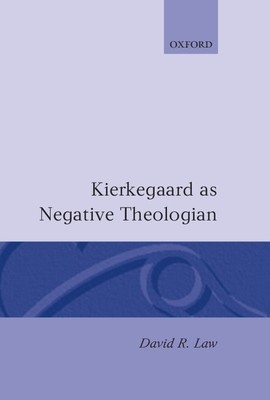
- We will send in 10–14 business days.
- Author: David R Law
- Publisher: Clarendon Press
- ISBN-10: 0198263368
- ISBN-13: 9780198263364
- Format: 14.8 x 22.4 x 2.1 cm, kieti viršeliai
- Language: English
- SAVE -10% with code: EXTRA
Reviews
Description
This book is concerned with Kierkegaard's 'apophaticism'--those elements of Kierkegaard's thought which emphasize the incapacity of human reason and the hiddenness of God. Apophaticism is an important underlying strand in Kierkegaard's thought and colors many of his key concepts. Despite its importance, however, it has until now been largely ignored by Kierkegaardian scholarship. Law argues that apophatic elements can be detected in every aspect of Kierkegaard's thought and that, despite proceeding from different presuppositions, he can therefore be regarded as a negative theologian. Indeed, the book concludes by arguing that Kierkegaard's refusal to make the transition from the via negativa to the via mystica means that he is more apophatic than the negative theologians themselves.
EXTRA 10 % discount with code: EXTRA
The promotion ends in 22d.15:29:14
The discount code is valid when purchasing from 10 €. Discounts do not stack.
- Author: David R Law
- Publisher: Clarendon Press
- ISBN-10: 0198263368
- ISBN-13: 9780198263364
- Format: 14.8 x 22.4 x 2.1 cm, kieti viršeliai
- Language: English English
This book is concerned with Kierkegaard's 'apophaticism'--those elements of Kierkegaard's thought which emphasize the incapacity of human reason and the hiddenness of God. Apophaticism is an important underlying strand in Kierkegaard's thought and colors many of his key concepts. Despite its importance, however, it has until now been largely ignored by Kierkegaardian scholarship. Law argues that apophatic elements can be detected in every aspect of Kierkegaard's thought and that, despite proceeding from different presuppositions, he can therefore be regarded as a negative theologian. Indeed, the book concludes by arguing that Kierkegaard's refusal to make the transition from the via negativa to the via mystica means that he is more apophatic than the negative theologians themselves.


Reviews